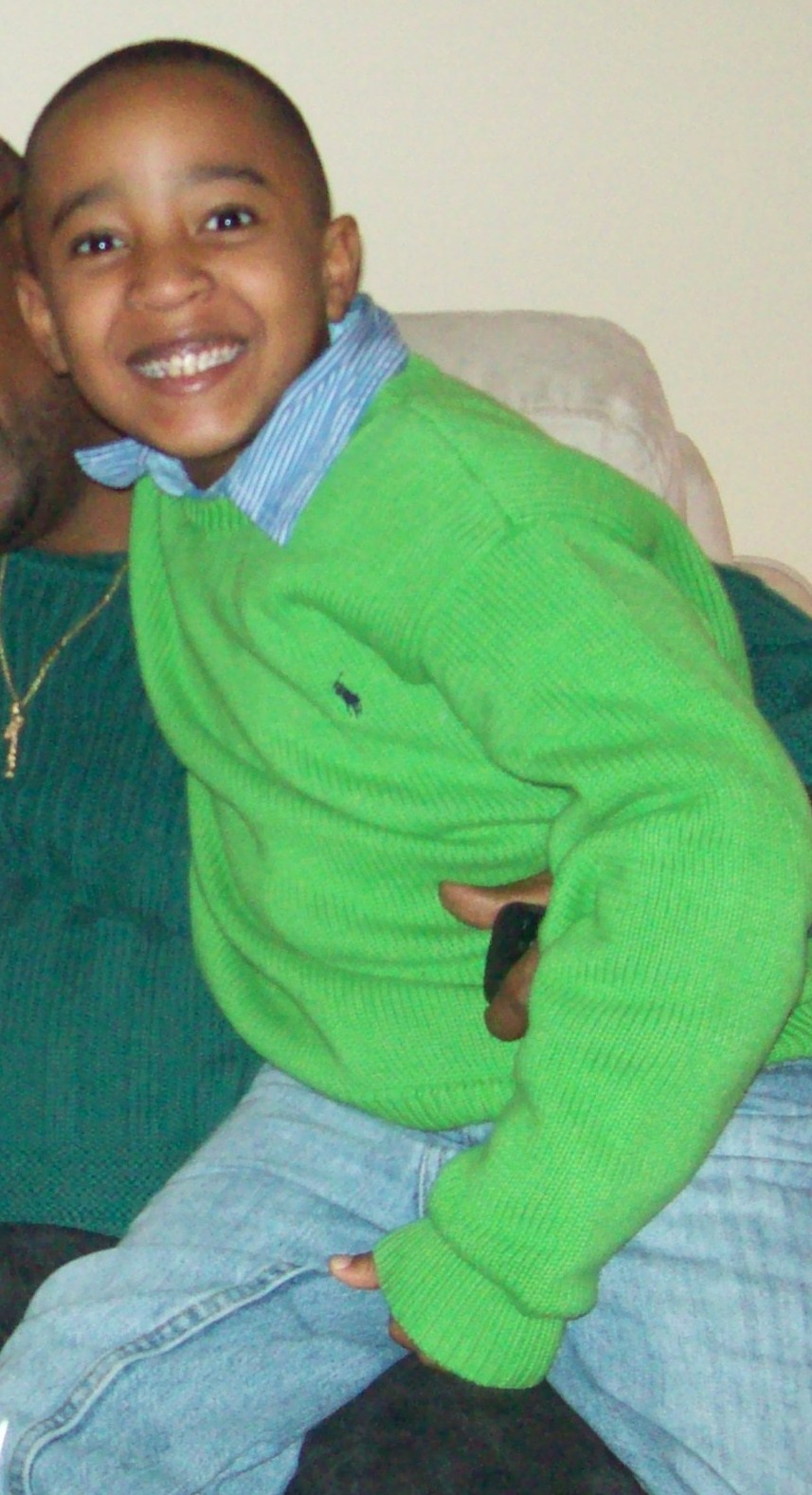A little more than a year ago my 7-year-old son, Joshua, had an identity crisis. He said the pretty ladies were white and he wanted to be white. Oh, you know my heart sunk. My son didn’t think his momma was pretty. He despised how his grandmothers, aunts and friends look. Blinking to hold back tears, catch my breath and move the lump from my throat, I asked him did he know what he was saying meant. I asked him did he know that he was saying that he didn’t think his momma was pretty. He thought for a second and then said, “Yes. The pretty ladies are white. You don’t have clothes like the ladies at the casino.”

Joshua, 7 years old
I couldn’t hear what Joshua was trying to say. I saw little children picking the white baby doll over the black baby doll. I thought, “How could this happen? He has an Afrocentric mother, parents who love him and affirm his blackness. He’s around positive and progressive black people. He owns and reads books with black images. And he doesn’t watch that much TV. How could a baby like mine say he wanted to be white?” And I felt like a failure. I hadn’t instilled cultural pride into my child and now he was telling me so. After the nanosecond of these thoughts flooding my mind I thought to ask him WHY he wanted to be white. He reasoned: “All the white people wear nice clothes. The black children on TV don’t have food and clothes and hell is dark. I want us to be white.”
With his one hour of television a week, which included pleas to help poor children in Africa, casino billboards with fancy dressed white people, and lessons on salvation, Joshua had ascertained that all things white must be good and all things black must be bad, and he didn’t want any of us to have any part of anything bad. And though what he was saying revealed a bad situation, I was relieved. At 6, my son was a critical thinker and he wanted what he perceived to be the best for him and his family. Now the task was to teach him about propaganda meant to entice and make him feel less than others.
I thought I would deluge him with the history of black oppression at the hands of whites, saturate my home with more Afrocentric images, become involved in former activities where he would see me dressed in formal clothes and be around those I knew who flaunted their money and status. But as a strong black woman in recovery who is healing from racial and social pride, I knew these were bad ideas. They would perpetuate in Joshua what I was trying to get rid of in me. So I did what I should have done in the first place: pray.
In the middle of the night, Proverbs 6:25 came to my mind and I knew God was giving me the answer to help my son and others who may be competitive to the point of being covetous. “Lust not after her beauty in thine heart; neither let her take thee with her eyelids.” This ‘her’ was the ‘strange woman’ in verse 24 and though the strange woman here is interpreted whore, the Hebrew word also means “foreign; someone not like you.” And the word lust is the same Hebrew word for covet. Joshua loves the Bible and constantly looks for applications in his life. I knew we needed to revisit The 10 Commandments, specifically “Thou shalt not covet” because God was saying at the root of Joshua’s identity crisis was an issue with covetousness. Joshua was coveting his neighbor’s skin color and possessions, and I was convinced that Joshua would get this. He did.
On his own, Joshua said, “I’m telling God, ‘I know you gave me this skin color, but I don’t want it. I want white skin.” Then he looked embarrassed and curious, like he had just been scolded and knew what the consequences would be if he didn’t stop coveting. Joshua learned the lesson immediately and there has been no more talk about wanting to be white. This lesson, along with teaching that God created ‘all nations of men,’ has helped Joshua understand that his being black was no accident but an intentional incident, and because of that he has no reason to covet. Joshua is my hero because he took the word of God and immediately applied it to his life. Also, Joshua now is quite proud to be black, constantly expressing awe and joy when discovering blacks’ accomplishments. I’m just working on his ability to love all the nations of people God has created and not seek to return hate for hate. As we reflect on the state of black people during this Black History Month, I think Joshua’s lessons are good for us all.
Copyright 2010 by Rhonda J. Smith

